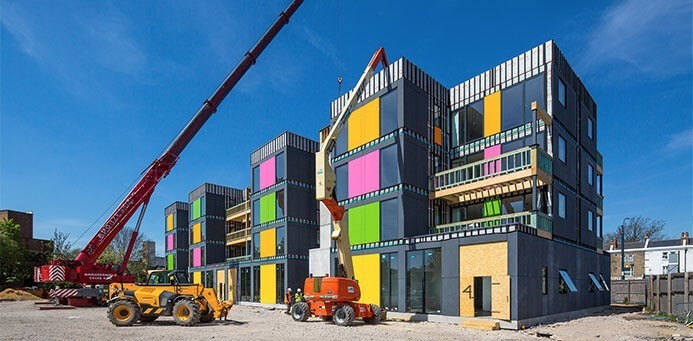Off-site housing construction: a response to the crisis?

The project is led by three researchers at the University of Leeds: Dr Andrew Wallace (School of Sociology and Social Policy), Dr Ornella Iuorio (School of Civil Engineering) and Dr Kate Simpson (Sustainability Research Institute) in collaboration with Bauman Lyons Architects https://baumanlyons.co.uk/ and Leeds City Council.
Initial funding is being provided by the Leeds Social Science Institute Impact Acceleration Account.
The UK government has pledged to build one million new homes by 2020, recognizing the long-term structural failures in housing supply, especially at the affordable level.
At the same time however, the UK construction sector is at something of a crossroads: it faces potential post-Brexit skills shortages but is being revolutionized by digital technologies.
One outcome of these trends has been growing interest in homes constructed 'off-site' using automated and modular systems. Off-site construction refers to the broad spectrum of design, fabrication and assembling activity that takes place beyond the installation or build location.
It is not a new concept – perhaps most famously associated in the UK with the iconic post-war ‘prefab’ home – but it is one which has evolved rapidly and grown in influence. It is a diverse sector, home to both a rich ecology of designers, architects and craftspeople and to larger players including Legal and General.
Off-site homes can be built and assembled in a matter of weeks and open-source software could, theoretically, democratise how we might design and manage our homes and communities.
Yorkshire has emerged as a significant region for the industry both acting as a client seeking to increase and diversify its local housing offer and as a location for a number of innovative off-site firms.
This interdisciplinary project seeks to understand the socio-technical challenges facing this rapidly emerging sector, to analyse the implications of any significant 'turn' to off-site, to share knowledge between researchers, practitioners and policy-makers and understand what potential off-site has for generating new innovations in housing supply, land ownership, community development, place-making and environmental sustainability.
